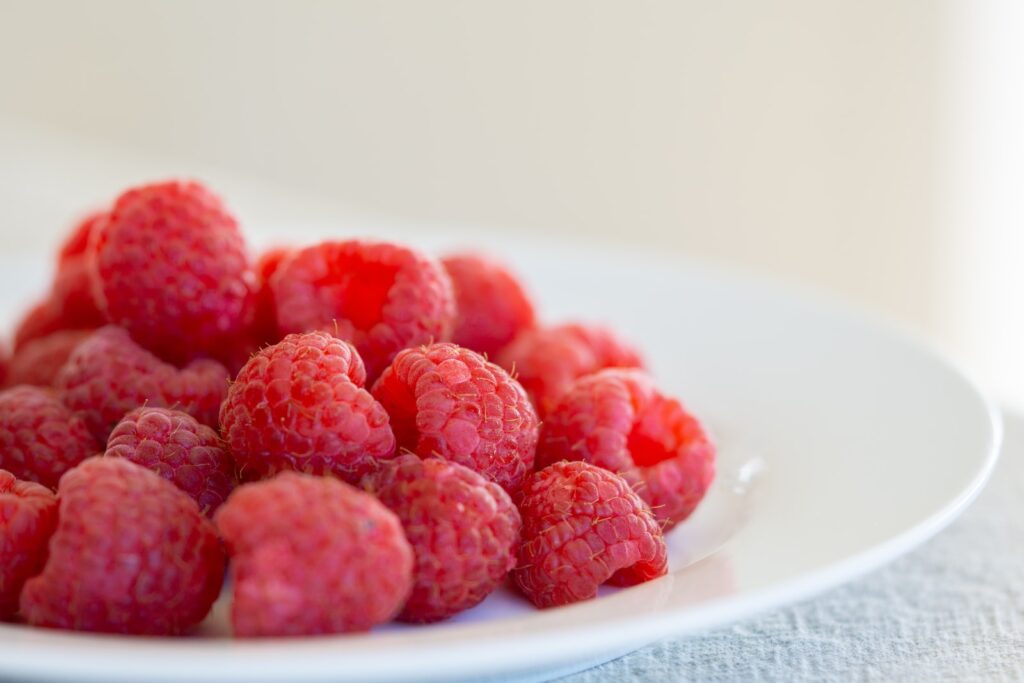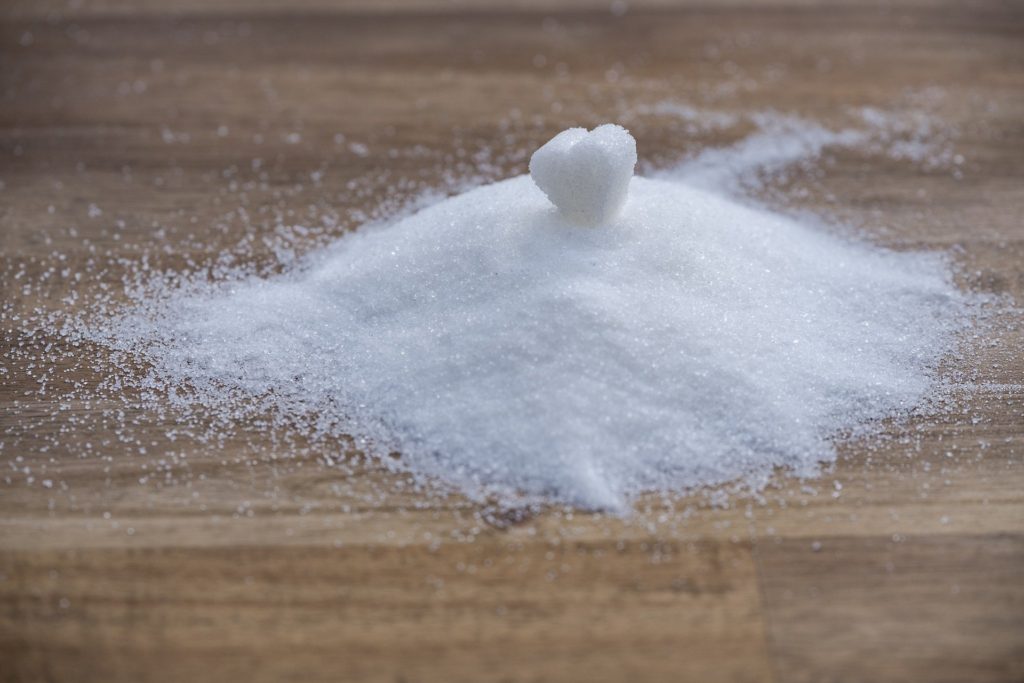BioSteel is a popular low-carb electrolyte drink that’s sweetened with stevia.
But, you may be wondering if it’s keto-friendly or not.
In this article, I’ll discuss the amount of carbs in BioSteel and if it’s good for a ketogenic diet or not.
*Note: Some of these links are Amazon affiliate links which make me a small commission if you buy from.*
What Is BioSteel?
BioSteel is a natural, low-calorie, electrolyte beverage that can help you stay hydrated and perform your best.
BioSteel has no sugar, calories, or artificial ingredients.
It’s not a sugar-loaded sports drink that’ll give you a sugar high, followed by a sugar crash.
Instead of sugar or artificial sweeteners, it’s sweetened with stevia.
BioSteel comes in these flavors:
- Mixed Berry
- Rainbow Twist
- White Freeze
- Blue Raspberry
- Peach Mango
- Grape
- Cherry Lime
I’ve tasted all flavors of BioSteel, and in my opinion, I think that rainbow twist is the best flavor since it’s refreshing and citrus-y.
You can find BioSteel either in a bottled or electrolyte packet form.
Is BioSteel an Energy Drink?
No, BioSteel is not an energy drink. It’s an electrolyte beverage that carries no caffeine. Stevia is used to sweeten the drink, so there’s no sugar “energy boost” that comes with it either. However, most people drink BioSteel to hydrate, not to provide energy.
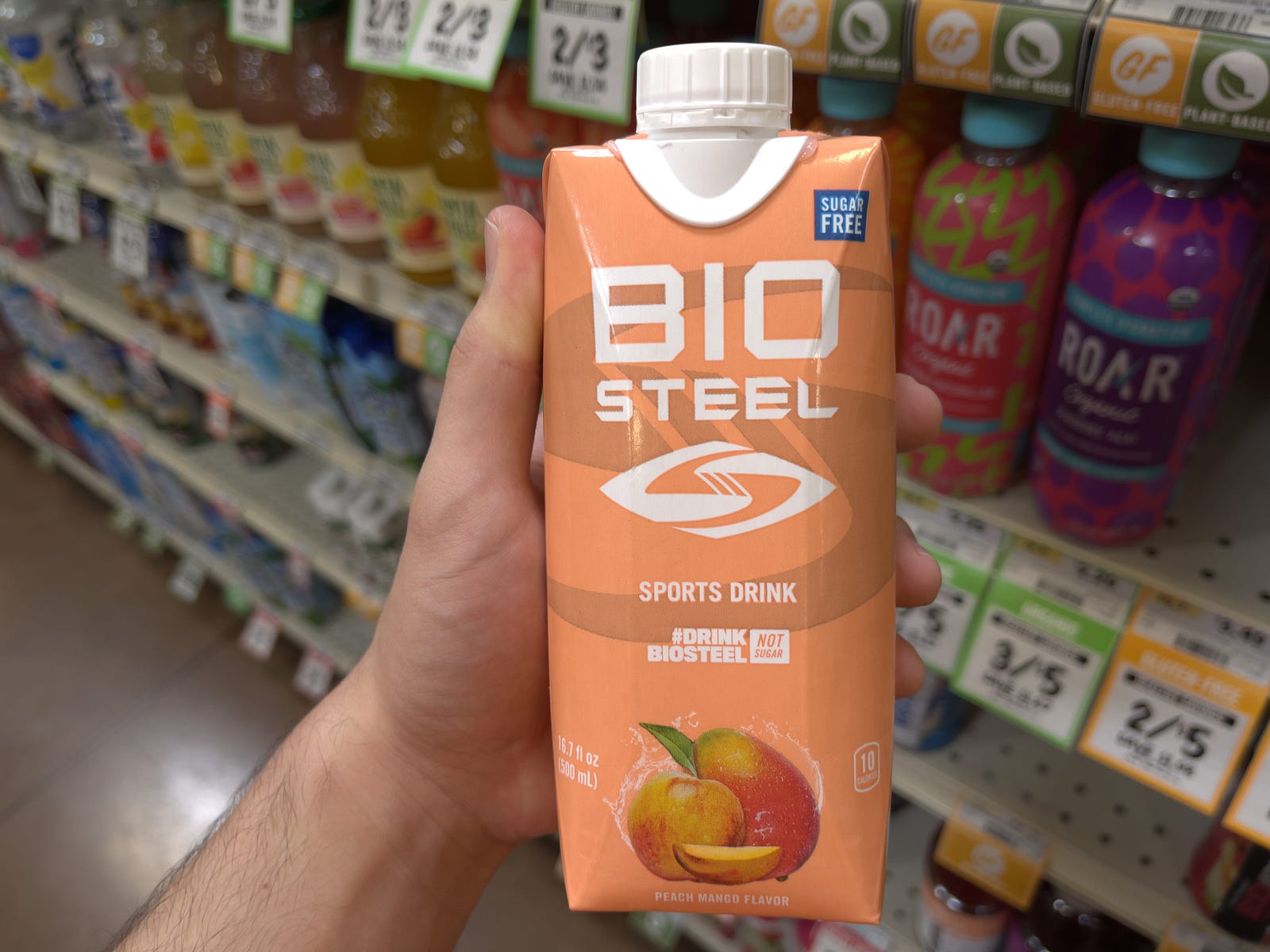
How Many Carbs Are In BioSteel?
One serving of BioSteel only has 1 gram of carbs since it’s sweetened with stevia instead of sugar.
Is BioSteel Keto-Friendly?
BioSteel is keto-friendly since it only contains 1 gram of net carbs per serving. In addition to that, BioSteel has many of the electrolytes that keto dieters are commonly deficient in, like sodium, potassium, magnesium, and calcium.
Because of that, BioSteel is gaining popularity in the keto community because it replenishes many of the electrolytes that most keto dieters are deficient in.
It’s also a good option for those who don’t like the taste of water.
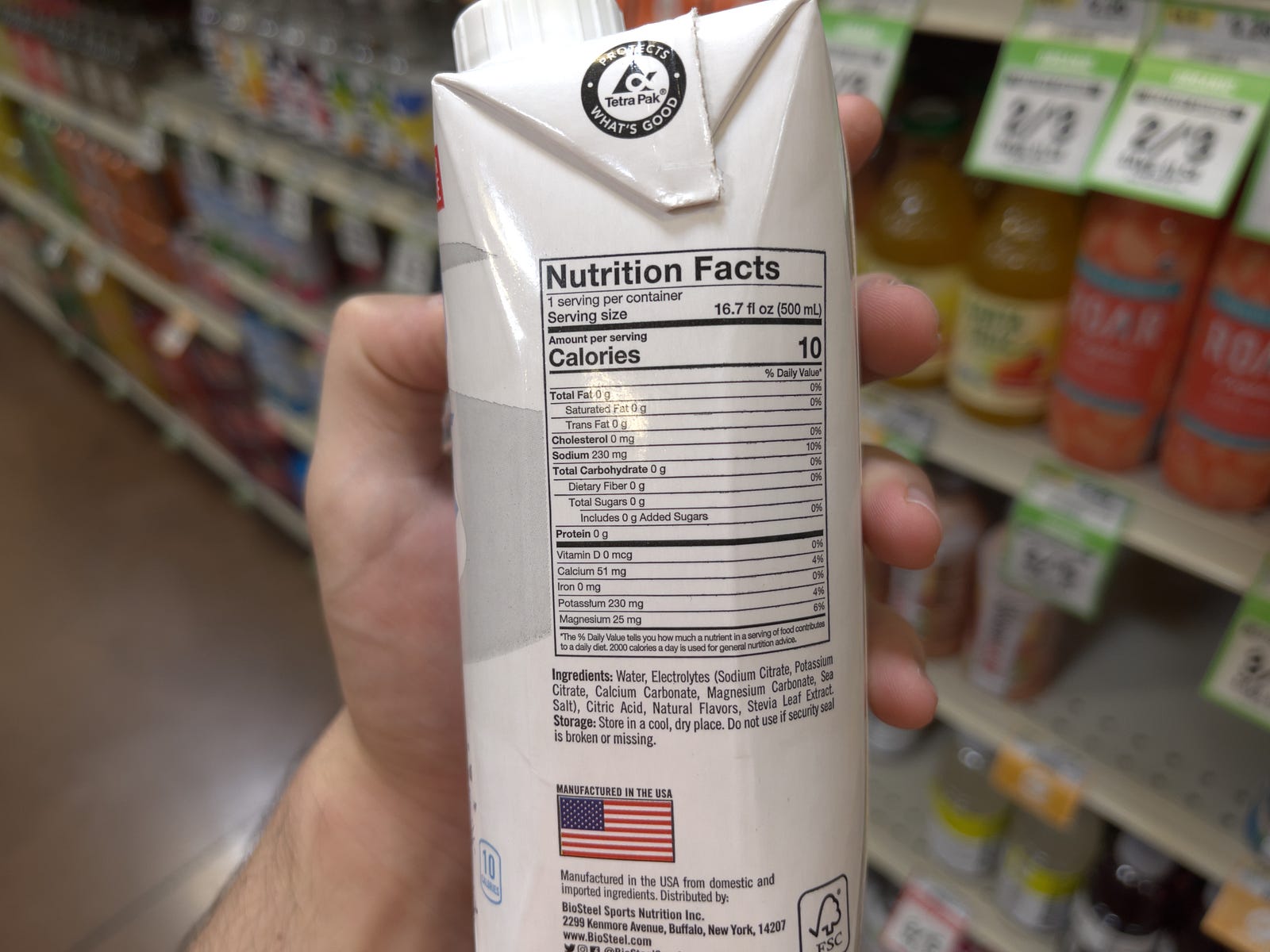
Does BioSteel Break a Fast?
BioSteel won’t break a fast because it has almost zero calories and less than a gram of carbs per serving.
What Ingredients Are In BioSteel?
The ingredients in BioSteel are: water, electrolyte blend (sodium citrate, potassium citrate, calcium carbonate, magnesium carbonate, sea salt,) citric Acid, natural flavors, and stevia leaf extract.
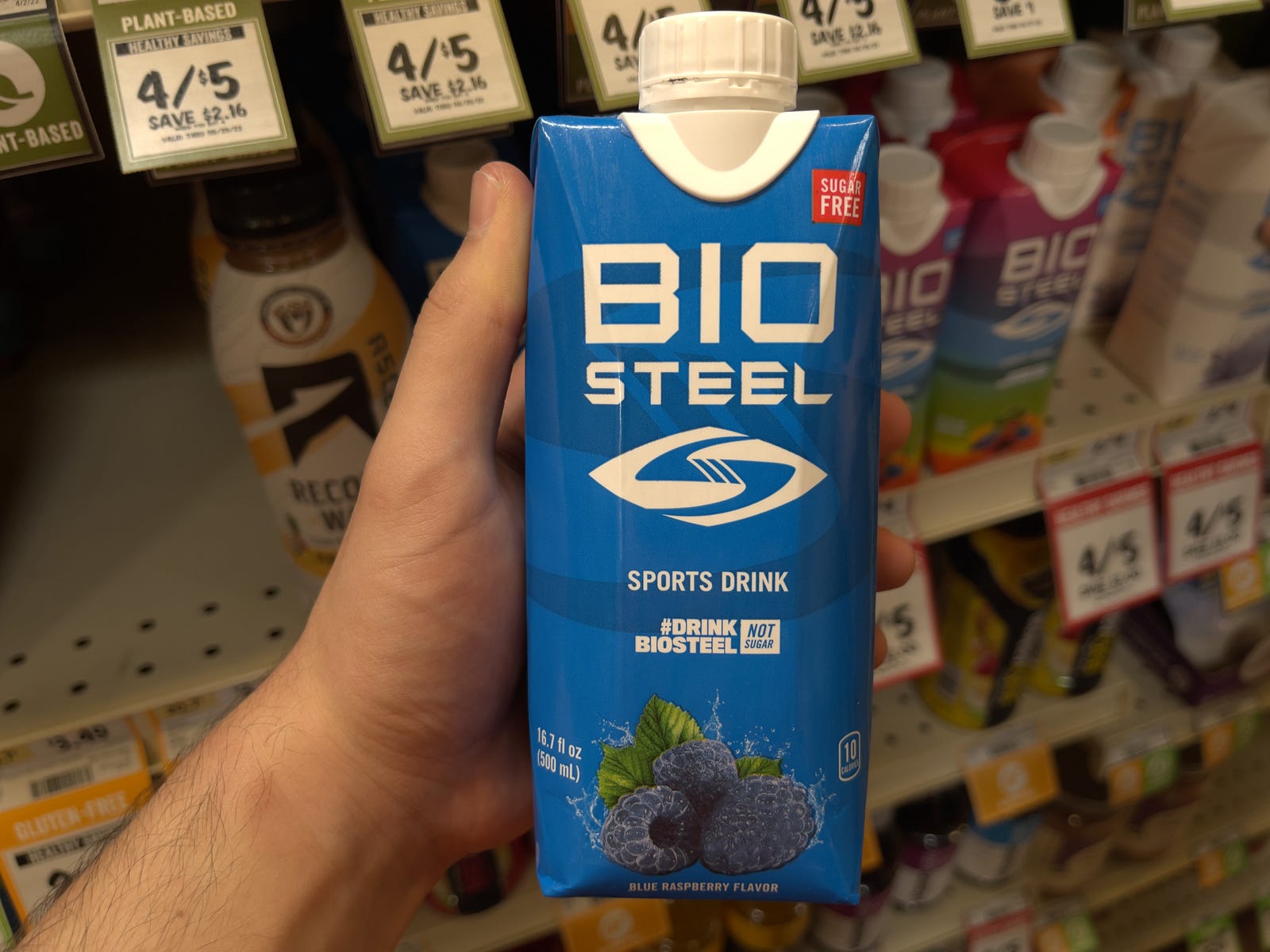
Is BioSteel Healthy?
BioSteel is healthy because it contains natural ingredients, like stevia, instead of artificial ones. It also contains almost zero carbs and calories, so it won’t spike your insulin either.
Compared to most other electrolyte beverages, BioSteel is far superior.
Most electrolyte beverages contain sugar, which is obviously bad for you.
But, most of the sugar-free alternatives that seem healthy use artificial sweeteners, which have been shown to cause diseases like stroke and dementia.
However, BioSteel uses stevia, which is a natural sweetener that has been shown to not cause any harmful effects.
Is BioSteel Worth It?
In my opinion, BioSteel is worth it since it’s low in carbs and calories, tastes great, and uses natural ingredients like stevia. In addition to that, BioSteel’s electrolyte blend is much better compared to other electrolyte drinks.
So, if you’re looking to replenish your electrolytes whilst enjoying a guilt-free drink, I highly recommend buying BioSteel.
How Much Does BioSteel Cost?
BioSteel costs $30 for a box of 12 bottles.
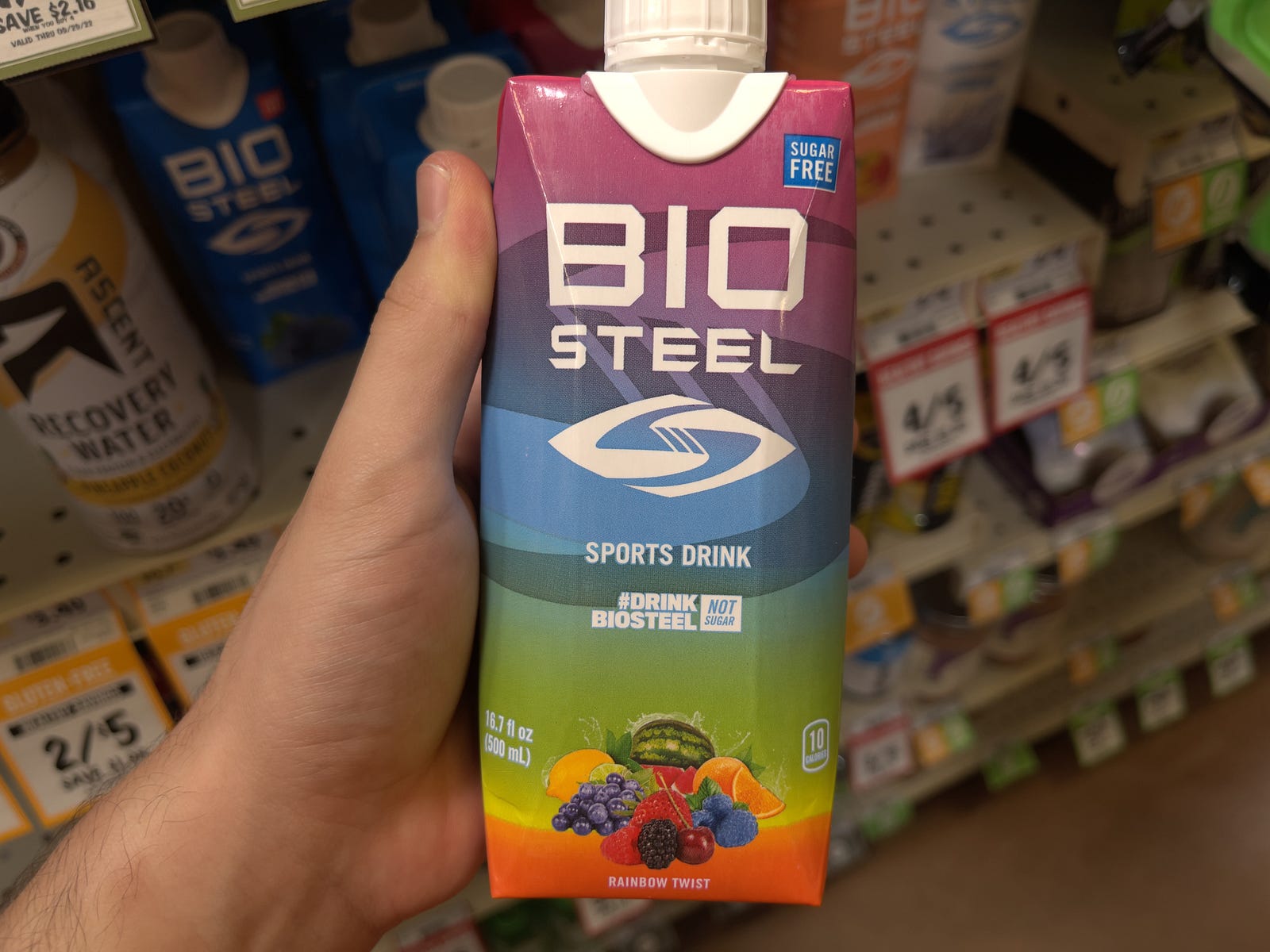
FAQ
Does BioSteel Taste Good?
All flavors of BioSteel taste great. But, some of them have a strong artificial taste that some people may dislike.
How Many Calories Are In BioSteel?
BioSteel has 10 calories per serving.
Is BioSteel Good for Diabetics?
People with diabetes can drink BioSteel since it has almost zero carbs and won’t raise your insulin or blood sugar.
And since it’s sweetened with stevia instead of artificial sweeteners, it won’t cause the negative effects that artificial sweeteners cause.
What Is the Shelf Life of BioSteel?
BioSteel has a shelf life of 12 months. You can store it at room temperature, preferably away from direct sunlight.
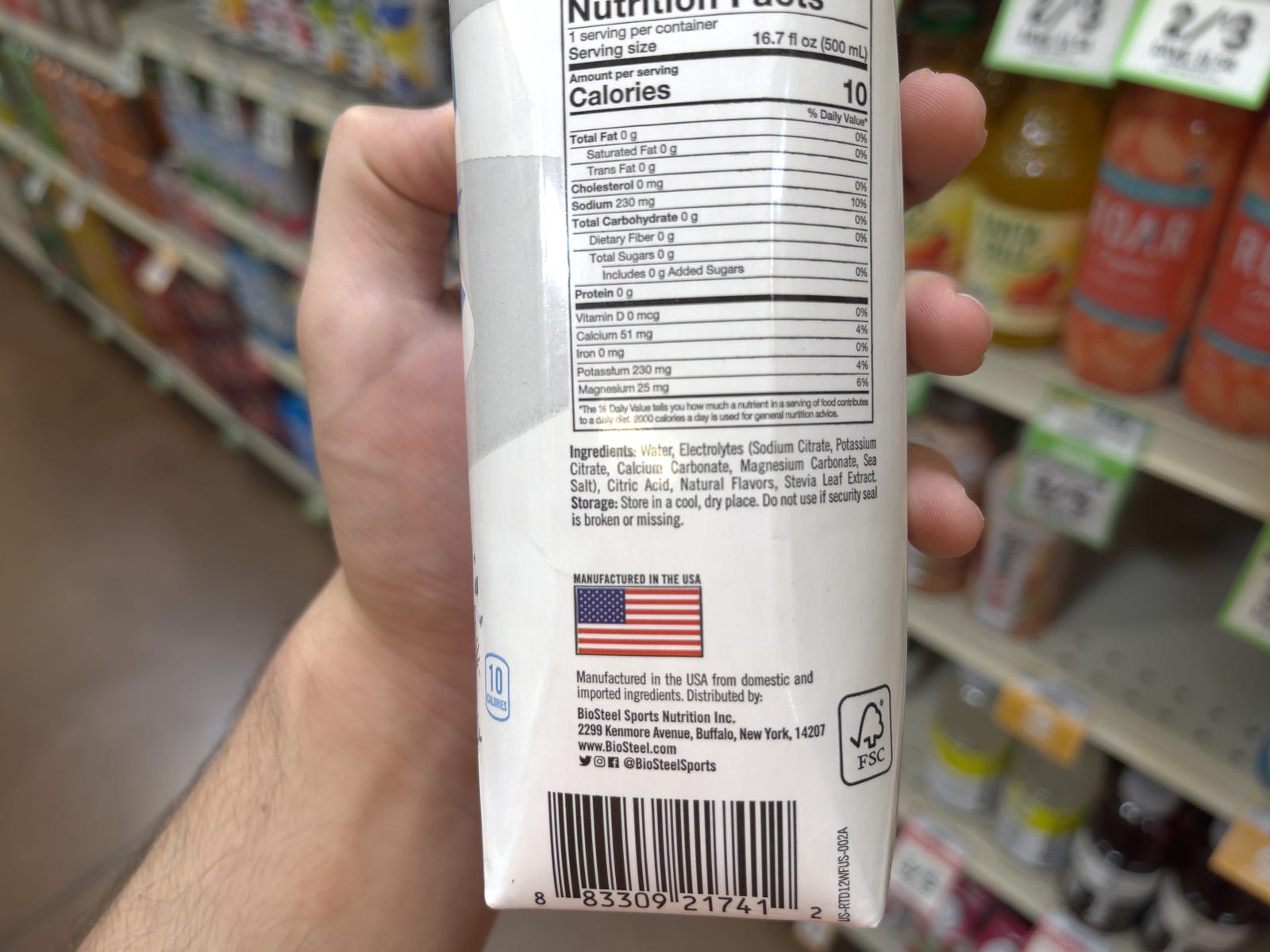
Does BioSteel Have Caffeine?
No, BioSteel doesn’t have any caffeine.
Does BioSteel Give You Energy?
No, BioSteel doesn’t give you energy through sugar or caffeine. But, it does give energy by supplying your body with electrolytes.
How Many Electrolytes Are In BioSteel?
Here are the electrolytes in BioSteel:
- Sodium: 230 mg
- Potassium: 230 mg
- Calcium: 50 mg
- Magnesium: 25 mg
Does BioSteel Contain Any Sugar?
No, BioSteel does not contain any sugar. It’s sweetened with stevia.
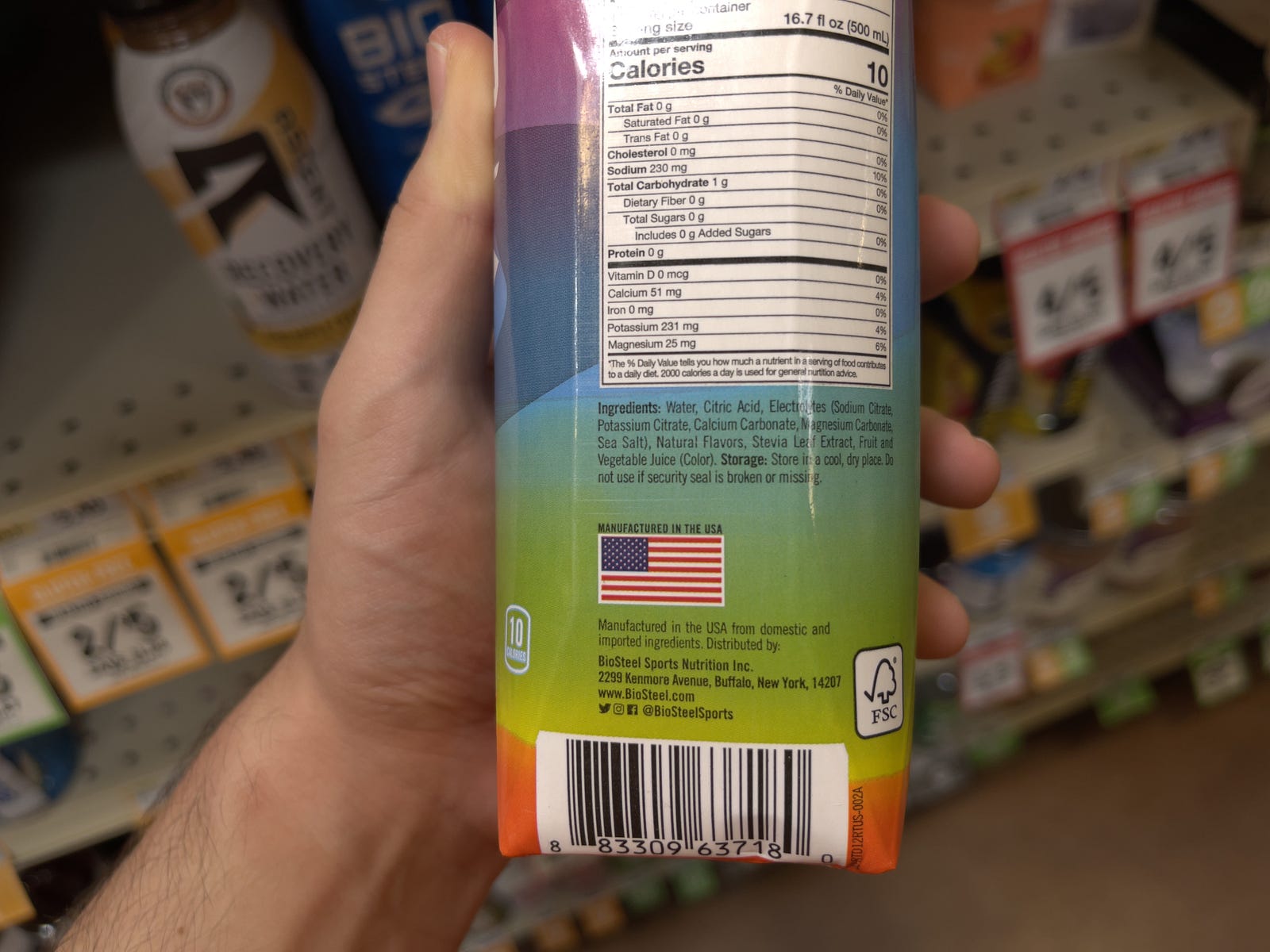
Does BioSteel Contain Any Protein?
No, BioSteel does not contain any protein.
What’s the Difference Between BioSteel and Gatorade Zero?
One difference between BioSteel and Gatorade Zero is that BioSteel uses stevia, a natural sweetener, whilst Gatorade Zero uses sucralose, which is an artificial sweetener.
Another difference between BioSteel and Gatorade Zero is that Gatorade Zero only contains salt and potassium as the electrolyte blend, whilst BioSteel also contains calcium and magnesium.
What Are the Side Effects of BioSteel?
BioSteel doesn’t have any side effects because it’s made with natural ingredients. It’s a safe hydration drink that’s appropriate for all athletes.
Does BioSteel Have Sugar?
No, BioSteel doesn’t have any sugar. Instead, it’s sweetened with stevia, which is a natural zero-calorie sweetener.
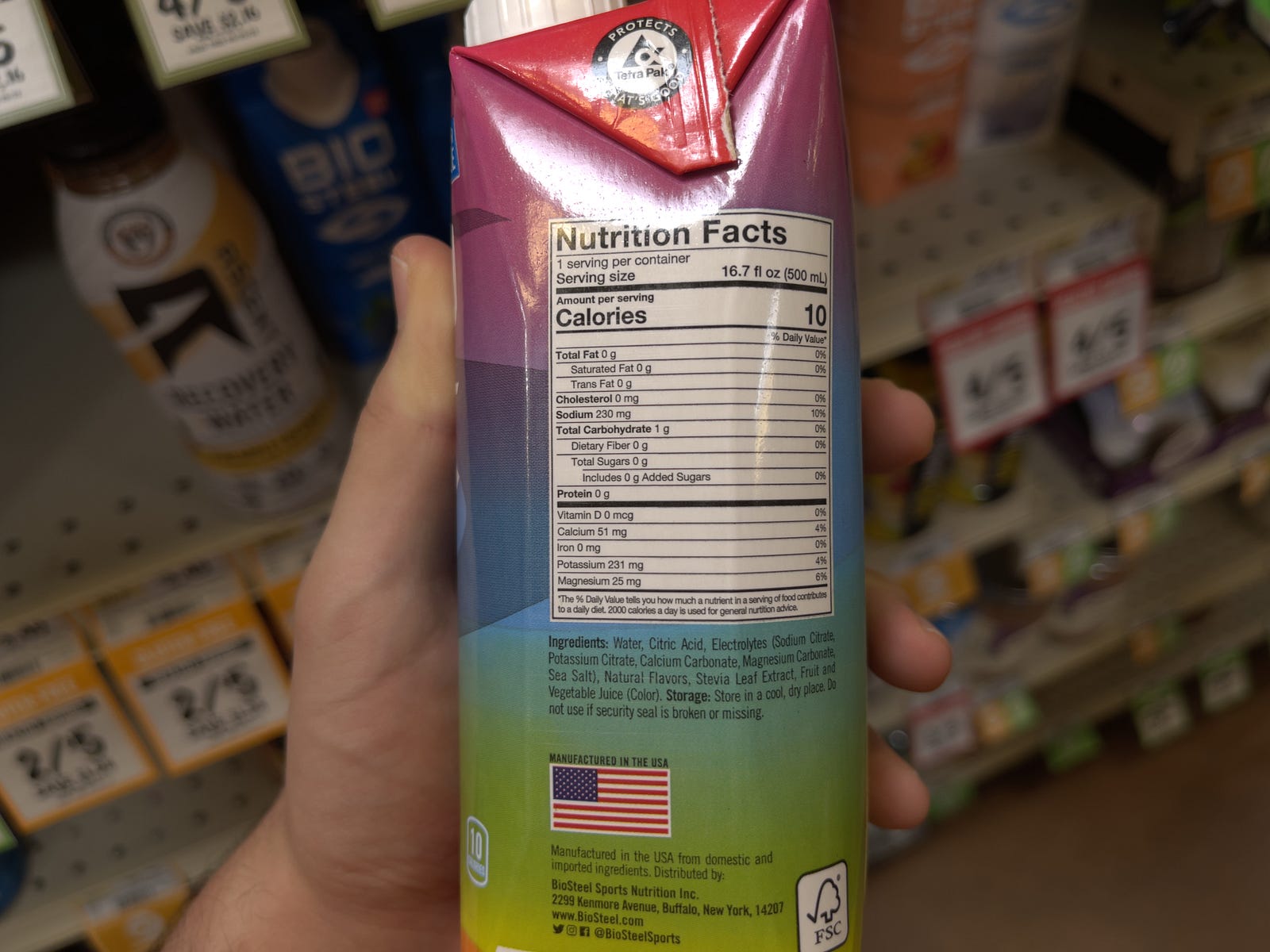
Does BioSteel Have BCAAs?
No, BioSteel doesn’t contain any BCAAs.
Conclusion
In conclusion, BioSteel is a great electrolyte drink for people on low-carb diets, like keto.
And since BioSteel uses stevia instead of artificial sweeteners like aspartame, you can rest assured knowing that you aren’t causing any harm to your body by drinking something sweet.
In addition to that, BioSteel has many electrolytes that are commonly deficient in keto dieters, so it’s a great addition to a keto diet.
If you want to learn how I lost over 40 pounds with OMAD, you can read my article here where I share everything I’ve learned about OMAD over my weight loss journey and how you can lose weight too.
Hope this helped!
- Can You Still Lose Weight If You Aren’t in Ketosis? - February 8, 2023
- Can the Keto Diet Help With Depression? - February 8, 2023
- Why Does Processed Food Make You Fat? - January 2, 2023


